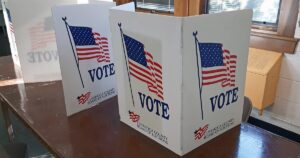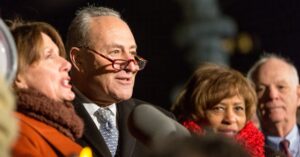FBI Official Reassigned After New Orleans Attack Comment
An FBI official has been reassigned following a premature statement that mischaracterized the nature of a tragic event in New Orleans.
Fox News reports an FBI assistant special agent originally declared that a New Orleans incident was not terrorism, a claim later contradicted by top federal officials after evidence confirmed it was, indeed, a terrorist act.
On New Year's Day, tragedy struck in New Orleans when Shamsud-Din Jabbar drove into a crowd on Bourbon Street, killing 14 and injuring many others. The chaos didn't stop there, as Jabbar proceeded to open fire on responding police officers. After law enforcement returned fire, Jabbar was killed at the scene.
Multiple Officials Confirm Terror Attack
Alethea Duncan, an assistant special agent with the FBI, addressed the media shortly afterward, stating it was "not a terrorist event." Her comments would soon be amended, however, as further details emerged.
Critical revelations surfaced when authorities found an ISIS flag inside Jabbar's truck. Also discovered were improvised explosive devices concealed in coolers, pointing to careful preparation for the attack.
The mayor of New Orleans, LaToya Cantrell, noted during the same press conference that the city had faced a terrorist incident, emphasizing that investigations were still ongoing. Her statement seemed to foreshadow the confirmations that would follow from federal officials.
Attack Happened During New Year Festivities
Jabbar's actions took place during New Year’s celebrations, adding to the senseless tragedy of the day. Authorities later pieced together that Jabbar had traveled from Houston on December 31 specifically to carry out his plan. By January 1, he unleashed his attack on unsuspecting celebrants in New Orleans.
The immediate aftermath saw the FBI distributing three distinct statements about the attack on the day it transpired. Each iteration provided more clarity, contrasting starkly with Duncan’s initial assessment.
In the days after the horrific event, Duncan appeared to retract her earlier position. She indicated that the situation was now being probed as an act of terror, aligning her comments with the broader conclusions reached by law enforcement and government figures.
Federal and Local Responses Evolve
Attorney General Merrick Garland and President Joe Biden both acknowledged the gravity of the situation in public announcements, labeling it a terrorist attack. Their perspectives underscored the widespread impact of such violent actions and reaffirmed commitments to addressing such threats directly.
While the loss of life and the injuries sustained by many remained the primary focus of concern, questions surfaced regarding the process by which initial assessments were made and advanced. This scrutiny led to Duncan’s reassignment within the FBI, highlighting the critical nature of information accuracy in such scenarios.
The reassignment evidences an understanding of the need for correct communication, particularly concerning sensitive and far-reaching topics like terrorism. It serves as a reminder of the weight carried by words used in the public domain.
A Reevaluation of Communication Protocols
The incident has sparked discussions within the FBI and other agencies about the evaluation of potential terrorist threats in their formative stages. Proper vetting and clear communication channels are emphasized as crucial, not only for public reassurance but also to guide response efforts appropriately.
New Orleans, a city with historical resilience, is grappling with the shock of this attack and the rapid developments that followed. The diverse collection of statements initially released highlights the complexity of coordinating information during such crises.
In the wake of the January 1 tragedy, officials remain committed to understanding the full extent of Jabbar's intentions and possible affiliations, furthering investigative measures to ensure such tragedies are less likely to occur in the future.
Community Support and Hopeful Resilience
The retrospective assessment of events like these necessitates a systematic approach to not only identifying potential threat actors but also engaging communities in preparedness and vigilance. The role of leadership in clearly communicating risks remains at the forefront of subsequent procedural adjustments.
As investigators continue to delve into details surrounding the attack, the New Orleans community, supported by local and federal authorities, seeks to move toward healing. Efforts to support victims and their families are underway, with a united front persisting through government and civic responses.
Though deeply impacted, New Orleans’ spirit of resilience shines through the turmoil. The communal drive to restore normalcy and safeguard the future offers a beacon of hope amid the darkness of recent events.




